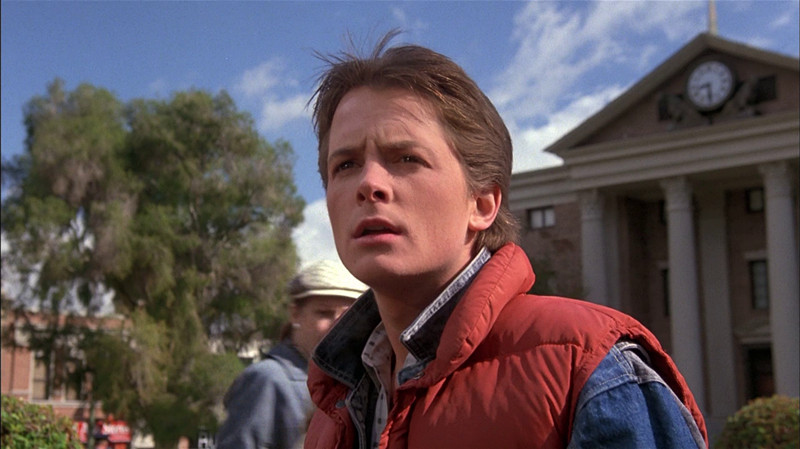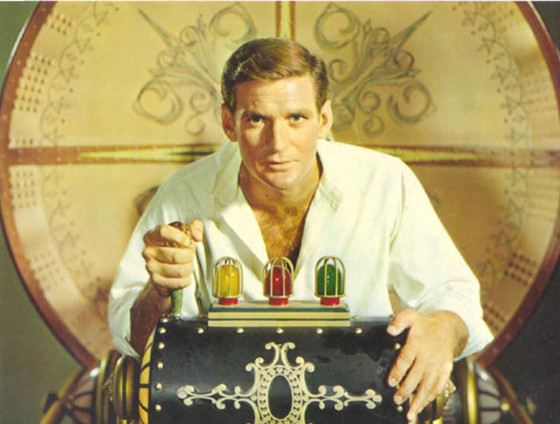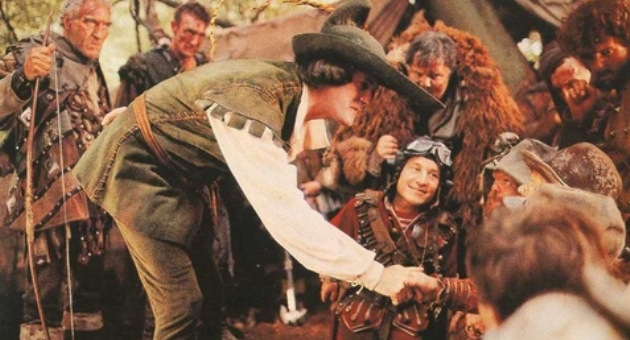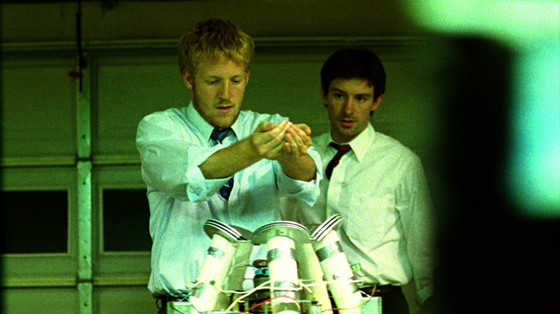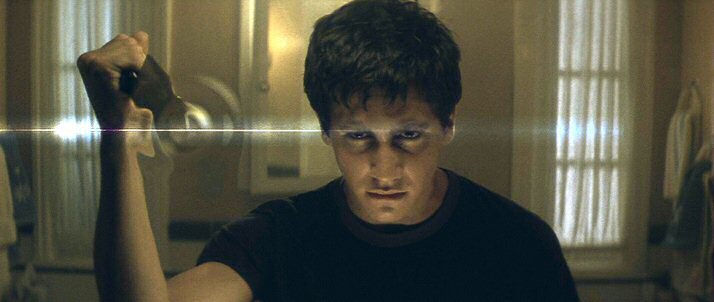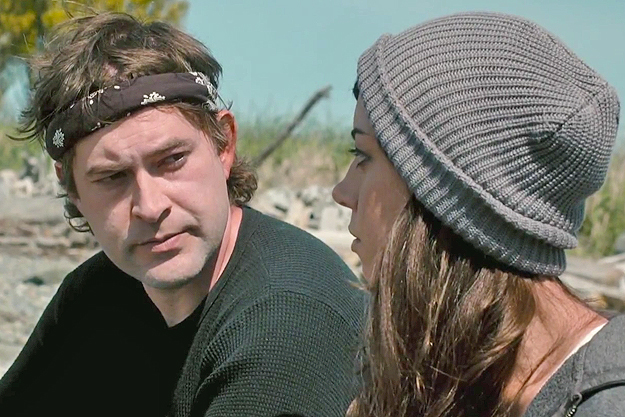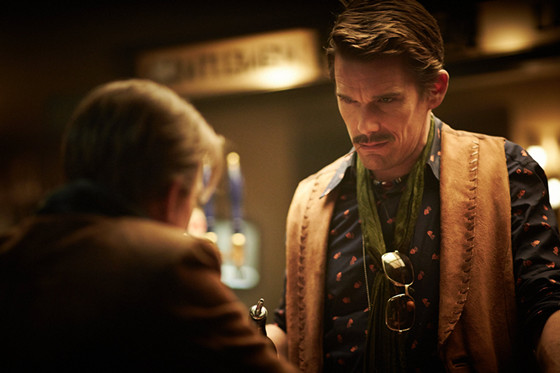Travelling back in time to change fate has always been the dreams of mankind. Early in 1888, the great H. G. Wells wrote a short story about time travelling, it’s called The Chronic Argonauts. It predates his more famous time travelling novel The Time Machine by 7 years.
The first notable film in this genre was the silent movie version of Mark Twain’s 1889 novel A Connecticut Yankee in King Arthur’s Court. The first time travel movie that got wide attentions was the 1960 classic The Time Machine, it was adapted from H.G. Wells’ novel and won an Oscar for best visual effects.
Two of the most famous time travel movies were born in the 1980s, namely The Terminator and Back to the Future. Since then, time travel movie have become the most beloved sub-genre of the sci-fi genre. This trend turns more obvious in the 21st century, beginning with the cult classic Donnie Darko. With 3 great 2014 releases on the list, the genre seems to get more and more exciting as time passes. Here are 20 great time travel movies that are definitely worth your time.
20. The Time Machine (George Pal, 1960)
Let’s start off with what might well be considered the granddaddy of all time travel movies: The Time Machine. Based on the novel of the same name by H.G. Wells, the 1960 adaptation of The Time Machine by George Pal was the first and best out of three as the story was adapted again for television in 1978 and remade once more in 2002, both with lesser results.
H. George Wells (Rod Taylor) is a gentleman and scientist from Victorian era England, who is obsessed with the notion of time travel. After building a steam-punk time machine (before that term even existed), George sets out on his first travel on December 31st 1899. He first goes forward 17 years in time and is shocked to find the world in the midst of World War I.
As bad luck would have it, he next goes to 1940, once again finding the world engulfed in war and when he fast forwards to 1966 things go from bad to worse as a nuclear holocaust is taking place at that stage. George manages to barely escape but due to a malfunction caused by the blast and an erupting volcano, he is forced to travel very far into the future, 802701 A.D. to be exact.
To his surprise he finds an idyllic society filled with gentle folk, who call themselves Eloi, but soon discovers that mankind has lost all its previously gained knowledge and that an mutated form of humanity, called Morlocks, lives underground and preys on the passive people above.
Whilst The Time Machine sure looks and feels dated by today’s standards, the real stand-out at the time were the inventive special effects, using stop-motion, inventive production design and an effective and evocative soundtrack to create a spectacular science fiction spectacular.
Rod Sterling is great in the lead role of author H.G.Wells himself and Yvette Mimieux is nicely seductive as his futuristic love-interest. The Time Machine rightfully won the 1961 Academy Award for Best Special Effects and was also nominated for Best Dramatic Presentation at the Hugo Awards that year.
19. Time Bandits (Terry Gilliam, 1981)
The first of two entries directed by Terry Gilliam found on this list, Time Bandits is one of the director’s earlier directorial efforts in which he still seems to be somewhat caught in his Monty-Python roots. Gilliam also produced and co-wrote the film (with Michael Palin, which might also explain the lingering Pythonesque humour in this feature) and the film features an all-star British cast including Sean Connery, John Cleese, Michael Palin, Ian Holm, Ralph Richardson and David Warner.
Kevin is an eleven-year-old boy living with his dreadfully dull and gadget-addicted parents in England. He seeks his escape in books and seems far more interested in history than anyone else in the household. Then one night, when he’s laying in bed, a knight on horseback storms out of his cupboard and disappears in the woods, which soon also disappear as a stunned Kevin finds himself in his bedroom again.
Unable to explain it, he can’t wait to go to bed the following night and see what happens. This time around, however, six dwarves, who have stolen a map from the Supreme Being appear from the cupboard.
They intend to use some “gaps” left in creation to just from era to era and steal treasure in each and before he knows what’s going on, Kevin finds himself part of their adventures, which leads him from the Napoleonic Wars to Robin Hood in Medieval England to King Agamemnon in ancient Greece. All this time the group is chased by the Supreme Being, who wants his map back, and Evil itself, who wants it for world domination.
Whilst Time Bandits is more successful when judged on its individual segments than as a coherent narrative, the film is an early example of Gilliam’s wild imagination and ability to get very much out of relatively little. The film is the first part of what is considered Gilliam’s Trilogy of the Imagination, followed by the more successful Brazil and The Adventures of Baron Munchausen, and his first non-Python film to gain global recognition.
Time Bandits was nominated for five Saturn Awards from the Academy of Science-Fiction, Fantasy and Horror Films, whilst receiving the President’s Award there, and also received Best Fantasy Film nominations at both Fantasporto and the Hugo Awards.
18. Primer (Shane Carruth, 2004)
The directorial debut of Shane Carruth, who also wrote the screenplay and produced, edited, scored as well as starred in the film, Primer is a pretty divisive film. Some will tell you this one of of the most brilliant time travel films ever made whilst others will have no idea what’s going on and tend to find the whole experience rather boring. But there is no denying that Primer caused a splash, is a unique piece of work and an utterly assured debut by Carruth.
Aaron (Carruth) and Abe (David Sullivan) have boring technology day jobs and spend their nights creating and selling error-checking systems from Aaron’s garage. When they pursue a new project, a device to reduce the weight of objects, Abe discovers an amazing side-effect: the device seems to alter time, allowing an object to be temporarily doubled.
As a consequence, Abe decides to build a larger version of the device, which a person can enter. By setting a timer and leaving the device before it starts to work and then enter it at a later stage, a person’s double will appear at the time the device was turned on and for the time between the turning on of the device and the person going into it at a later stage, both the original person and their double co-exist until the original disappears when entering the box and the double takes over. Sound complicated? It is, and that is supposed to be a clear summary without the technical jargon and elliptical narrative.
Apparently made for only $7000, Primer is a victory of independent filmmaking and if anything and enormously confident and original debut for Shane Carruth, a mathematics student and former engineer. Deciding not to “dumb things down”, Carruth did not simplify any of the technical jargon and purposefully keeps things oblique, causing the audience to always just sort of understand what is going on, which strangely enough becomes the exact thing that keeps this film intriguing.
Certainly not a film for everybody, Primer is a one of a kind experience and a worthy addition to the canon of time travel movies. The film won the Alfred P. Sloan Feature Film Prize and the Grand Jury Prize at Sundance, was nominated for Best Feature at Stiges, Fantasporto and the Gotham Awards whilst also picking up four nominations at the Independent Spirit Awards.
17. Donnie Darko (Richard Kelly, 2001)
The feature film directorial debut of Richard Kelly, who also wrote the screenplay, is an unsettling and melancholy mixture of teen movie, horror, science fiction and supernatural drama. The film was a mild success upon its initial release but quickly gained a large cult following, which in turn led to the release of a twenty minute longer director’s cut in 2004.
Donnie (Jake Gyllenhaal) is a troubled teenager who is often visited by the most scary looking 6-foot bunny-like creature called Frank. As the movie begins, Donnie is woken up by Frank, led outside the house and told the world will come to an end in four weeks. Moments after this revelation an jet plane engine crashes through Donnie’s roof, demolishing his bedroom.
Seeing this as a sign that the prophecy might be true, Donnie continues his bizarre home and school life whilst committing some disturbing acts under the influence of Frank. When Frank one day brings up time travel, Donnie goes to speak to his science teacher about it and is given the book The Philosophy of Time Travel, written by a former teacher at his school.
Meanwhile he starts dating the new girl at school (Jena Malone), talks to his psychotherapist (Katharine Ross) about his strange visions and burns down the house of a creepy motivational speaker (Patrick Swayze), only to expose a collection of child pornography, which leads to his arrest. By the time Halloween hits, the four weeks are up, and Donnie goes to visit the writer of the time travel book as a strange storm brews over Donnie’s house.
If the above description doesn’t make much sense, it’s because Donnie Darko isn’t very concerned with a straight-forward narrative. An oblique mood-piece, the film is an incredible exercise in style, combining various genres whilst evoking an ominous tone throughout, firmly set in 80’s nostalgia.
Whilst there isn’t a lot of time travel going on in Donnie Darko, it’s ultimately central to the film. That combined with the film’s undisputed cult status made it an essential addition to this list although one’s appreciation for the film might be dependent on one’s tolerance for weirdness.
The film won Best Screenplay at Stiges, where is was also nominated for Best Film, a Special Award from the Academy of Science Fiction, Fantasy and Horror Films for Young Filmmakers and three nominations at the Independent Spirit Awards for Best First Feature, Screenplay and Actor.
16. Safety Not Guaranteed (Colin Trevorrow, 2012)
Inspired by a real-life Backwoods Home magazine classified ad, which was actually written as a joke by one of the magazine’s employees as pure filler, Safety Not Guaranteed is an indie comedy with romantic, sci-fi and dramatic undertones, directed by Colin Trevorrow and starring Aubrey Plaza and Mark Duplass.
After Seattle Magazine writer Jeff (Jake Johnson) comes across a classified ad which reads: “WANTED: Somebody to go back in time with me. This is not a joke. P.O. Box 91 Ocean View, WA 99393. You’ll get paid after we get back. Must bring your own weapons. I have only done this once before. SAFETY NOT GUARANTEED.”, he pitches the story to his boss and is sent off with two colleagues, Darius (Plaza) and Arnau (Karan Soni), to do a piece on the person behind the odd ad.
It turns out to be a grocery store clerk named Kenneth (Duplass), a paranoid lonely soul. Darius poses as someone who is answering his ad and over time she comes to like and even care for the clearly wounded Kenneth. Kenneth reveals to Darius that his mission is to safe his girlfriend who died when a car drove into her house, whilst Darius tells him she’s there to prevent the untimely death of her mother.
But when it turns out that Kenneth’s old girlfriend is still alive and that it was in fact Kenneth that drove his car into her boyfriend’s house, Darius goes to confront Kenneth, who simply takes it as proof that his previous time travel trip worked, and starts to have her doubts about how to proceed with the story as his mental state is clearly in question.
Whilst time travel is central to the storyline of Safety Not Guaranteed, the film’s main themes are regret and coming to terms with one’s past mistakes. The film is filled with great dialogue, equal measures of comedy and heartfelt drama, and strong central performances from Plaza and especially Duplass, who makes for a fully believable kind-hearted damaged soul.
Safety Not Guaranteed won Best Screenplay Awards at Sundance, where it was also in the running for the Grand Jury Prize, as well as the Independent Spirit Awards, where it also picked up a prize for Best First Feature. The film received Best Film nominations at Stiges and the Academy of Science Fiction, Fantasy and Horror Films.
15. Predestination (Michael & Peter Spierig, 2014)
Based on the short story All You Zombies by Robert A. Heinlein, Predestination is an Australian science fiction film directed by Michael and Peter Spierig, aka The Spierig Brothers. The two had already made two previous features together, but Predestination marks the point where they really start getting into their own and actually provide a fresh and original take on the time travel genre.
The whole point of the narrative is its intricate web of time travel conundrums. Suffice to say that the film deals with an organisation known as The Temporal Bureau which sends its “temporal agents” through time to prevent crimes before they occur.
The bureau is headed by Mr. Robertson (Noah Taylor) who sends one of its agents (Ethan Hawke) on his last mission before he will be decommissioned, just after he has returned from a semi-successful assignment, which saw him prevent a bombing by the “Fizzle Bomber”, the only criminal to constantly elude the bureau throughout time.
The agent is sent to 1970 where he meets a man, who writes column for a magazine under the guise of being a woman. The get to talking and the man bets the agent that he can tell him the most incredible story and that if he does, he’ll be owed a bottle of whiskey.
And so starts the story of Jane (Sarah Snook), an orphaned girl who grows up to be recruited for the Space Corps, until medical tests discover an anomaly, which disqualifies her and sets in motion a series of events which will have everything to do with the Fizzle Bomber, the Agent and Temporal Bureau.
Another film where a lot is achieved with relatively little, although at times the budget restrains do show, Predestination is an extremely intricate yet fresh take on the time travel concept. Without giving anything away, the film thrives on the conundrums and paradoxes of time travel and even goes out of its way to overcomplicate them. Whilst that might sound as a criticism, it actually works in the film’s favour and is what makes it feel as an original take on some ideas you have seen before.
Whilst it isn’t perfect, it’s a major step forward for the Spierig Brothers and it will be very interesting to see where they go from here. Predestination won Best Sci-Fi film and Best Screenplay at the Toronto After Dark Film Festival, where it also received Second Prize for Best Film from the Audience Awards.
